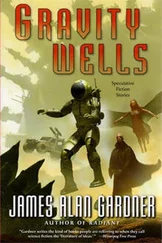Charles Dilke - Greater Britain
Здесь есть возможность читать онлайн «Charles Dilke - Greater Britain» — ознакомительный отрывок электронной книги совершенно бесплатно, а после прочтения отрывка купить полную версию. В некоторых случаях можно слушать аудио, скачать через торрент в формате fb2 и присутствует краткое содержание. Жанр: foreign_antique, foreign_prose, Путешествия и география, на английском языке. Описание произведения, (предисловие) а так же отзывы посетителей доступны на портале библиотеки ЛибКат.
- Название:Greater Britain
- Автор:
- Жанр:
- Год:неизвестен
- ISBN:нет данных
- Рейтинг книги:5 / 5. Голосов: 1
-
Избранное:Добавить в избранное
- Отзывы:
-
Ваша оценка:
- 100
- 1
- 2
- 3
- 4
- 5
Greater Britain: краткое содержание, описание и аннотация
Предлагаем к чтению аннотацию, описание, краткое содержание или предисловие (зависит от того, что написал сам автор книги «Greater Britain»). Если вы не нашли необходимую информацию о книге — напишите в комментариях, мы постараемся отыскать её.
Greater Britain — читать онлайн ознакомительный отрывок
Ниже представлен текст книги, разбитый по страницам. Система сохранения места последней прочитанной страницы, позволяет с удобством читать онлайн бесплатно книгу «Greater Britain», без необходимости каждый раз заново искать на чём Вы остановились. Поставьте закладку, и сможете в любой момент перейти на страницу, на которой закончили чтение.
Интервал:
Закладка:
After all, the Southern planters are not “The South,” which for political purposes is composed of the “mean whites,” of the Irish of the towns, and of the Southwestern men – Missourians, Kentuckians, and Texans – fiercely anti-Northern, without being in sentiment what we should call Southern, certainly not representatives of the “Southern Chivalry.” The “mean whites,” or “poor trash,” are the whites who are not planters – members of the slaveholding race who never held a slave – white men looked down upon by the negroes. It is a necessary result of the despotic government of one race by another that the poor members of the dominant people are universally despised: the “destitute Europeans” of Bombay, the “white loafers” of the Punjaub, are familiar cases. Where slavery exists, the “poor trash” class must inevitably be both large and wretched: primogeniture is necessary to keep the plantations sufficiently great to allow for the payment of overseers and the supporting in luxury of the planter family, and younger sons and their descendants are not only left destitute, but debarred from earning their bread by honest industry, for in a slave country labor is degrading.
The Southern planters were gentlemen, possessed of many aristocratic virtues, along with every aristocratic vice; but to each planter there were nine “mean whites,” who, though grossly ignorant, full of insolence, given to the use of the knife and pistol upon the slightest provocation, were, until the election of Lincoln to the presidency, as completely the rulers of America as they were afterward the leaders of the rebellion.
At sunset we started up the James on our way to City Point and Richmond, sailing almost between the very masts of the famous rebel privateer the Florida , and seeing her as she lay under the still, gray waters. She was cut out from a Brizilian port, and when claimed by the imperial government, was to have been at once surrendered. While the dispatches were on their way to Norfolk, she was run into at her moorings by a Federal gunboat, and filled and sank directly. Friends of the Confederacy have hinted that the collision was strangely opportune; nevertheless, the fact remains that the commander of the gunboat was dismissed the navy for his carelessness.
The twilight was beyond description lovely. The change from the auks and ice-birds of the Atlantic to the blue-birds and robins of Virginia was not more sudden than that from winter to tropical warmth and sensuous indolence; but the scenery, too, of the river is beautiful in its very changelessness. Those who can see no beauty but in boldness might call the James as monotonous as the lower Loire.
After weeks of bitter cold, warm evenings favor meditation. The soft air, the antiquity of the forest, the languor of the sunset breeze, all dispose to dream and sleep. That oak has seen Powhatan; the founders of Jamestown may have pointed at that grand old sycamore. In this drowsy humor, we sighted the far-famed batteries of Newport News, and turning-in to berth or hammock, lay all night at City Point, near Petersburg.
A little before sunrise we weighed again, and sought a passage through the tremendous Confederate “obstructions.” Rows of iron skeletons, the frame-works of the wheels of sunken steamers, showed above the stream, casting gaunt shadows westward, and varied only by here and there a battered smoke-stack or a spar. The whole of the steamers that had plied upon the James and the canals before the war were lying here in rows, sunk lengthwise along the stream. Two in the middle of each row had been raised to let the government vessels pass, but in the heat-mist and faint light the navigation was most difficult. For five and twenty miles the rebel forts were as thick as the hills and points allowed; yet, in spite of booms and bars, of sunken ships, of batteries and torpedoes, the Federal monitors once forced their way to Fort Darling in the outer works of Richmond. I remembered these things a few weeks later, when General Grant‘s first words to me at Washington were: “Glad to meet you. What have you seen?” “The Capitol.” “Go at once and see the Monitors.” He afterward said to me, in words that photograph not only the Monitors, but Grant: “You can batter away at those things for a month, and do no good.”
At Dutch Gap we came suddenly upon a curious scene. The river flowed toward us down a long, straight reach, bounded by a lofty hill crowned with tremendous earthworks; but through a deep trench or cleft, hardly fifty yards in length, upon our right, we could see the stream running with violence in a direction parallel with our course. The hills about the gully were hollowed out into caves and bomb-proofs, evidently meant as shelters from vertical fire, but the rough graves of a vast cemetery showed that the protection was sought in vain. Forests of crosses of unpainted wood rose upon every acre of flat ground. On the peninsula, all but made an island by the cleft, was a grove of giant trees, leafless, barkless, dead, and blanched by a double change in the level of the stream. There is no sight so sad as that of a drowned forest, with a turkey-buzzard on each bough. On the bank upon our left was an iron scaffold, eight or ten stories high, – “Butler‘s Lookout,” as the cleft was “Butler‘s Dutch Gap Canal.” The canal, unfinished in war, is now to be completed at State expense for purposes of trade.
As we rounded the extremity of the peninsula an eagle was seen to light upon a tree. From every portion of the ship – main deck, hurricane deck, lower deck ports – revolvers, ready capped and loaded, were brought to bear upon the bird, which sheered off unharmed amid a storm of bullets. After this incident, I was careful in my political discussions with my shipmates; disarmament in the Confederacy had clearly not been extended to private weapons.
The outer and inner lines of fortifications passed, we came in view of a many-steepled town, with domes and spires recalling Oxford, hanging on a bank above a crimson-colored foaming stream. In ten minutes we were alongside the wharf at Richmond, and in half an hour safely housed in the “Exchange Hotel,” kept by the Messrs. Carrington, of whom the father was a private, the son a colonel, in the rebel volunteers.
The next day, while the works and obstructions on the James were still fresh in my mind, I took train to Petersburg, the city the capture of which by Grant was the last blow struck by the North at the melting forces of the Confederacy.
The line showed the war: here and there the track, torn up in Northern raids, had barely been repaired; the bridges were burnt and broken; the rails worn down to an iron thread. The joke “on board,” as they say here for “in the train,” was that the engine-drivers down the line are tolerably cute men, who, when the rails are altogether worn away, understand how to “go it on the bare wood,” and who at all times “know where to jump.”
From the window of the car we could see that in the country there were left no mules, no horses, no roads, no men. The solitude is not all owing to the war: in the whole five and twenty miles from Richmond to Petersburg there was before the war but a single station; in New England your passage-card often gives a station in every two miles. A careful look at the underwood on either side the line showed that this forest is not primeval, that all this country had once been plowed.
Virginia stands first among the States for natural advantages: in climate she is unequaled; her soil is fertile; her mineral wealth in coal, copper, gold, and iron enormous, and well placed; her rivers good, and her great harbor one of the best in the world. Virginia has been planted more than two hundred and fifty years, and is as large as England, yet has a free population of only a million. In every kind of production she is miserably inferior to Missouri or Ohio, in most, inferior also to the infant States of Michigan and Illinois. Only a quarter of her soil is under cultivation, to half that of poor, starved New England, and the mines are deserted which were worked by the very Indians who were driven from the land as savages a hundred years ago.
Читать дальшеИнтервал:
Закладка:
Похожие книги на «Greater Britain»
Представляем Вашему вниманию похожие книги на «Greater Britain» списком для выбора. Мы отобрали схожую по названию и смыслу литературу в надежде предоставить читателям больше вариантов отыскать новые, интересные, ещё непрочитанные произведения.
Обсуждение, отзывы о книге «Greater Britain» и просто собственные мнения читателей. Оставьте ваши комментарии, напишите, что Вы думаете о произведении, его смысле или главных героях. Укажите что конкретно понравилось, а что нет, и почему Вы так считаете.












